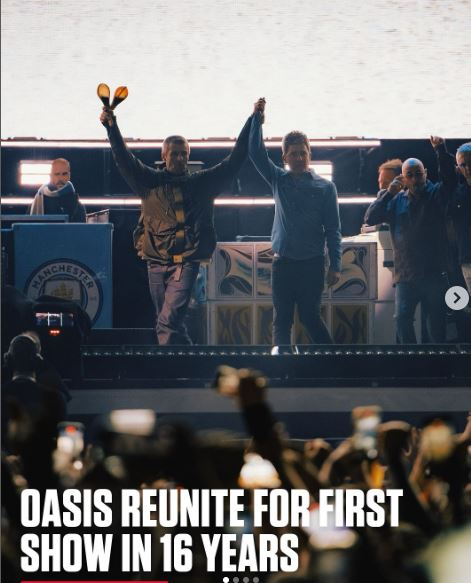
Simona Halep, a two-time Grand Slam champion and former world No. 1, tested positive in 2022 for roxadustat, a banned substance known to enhance endurance by stimulating red blood cell production. Halep consistently denied intentional doping, claiming contamination from a nutritional supplement.
Despite her appeals, the International Tennis Integrity Agency ruled against her, handing down a four-year suspension—a punishment that could effectively end her career given she is already in her early 30s.
For Halep, the ban was devastating. For Williams, it reopened old wounds. And for the wider tennis world, it created a polarized debate about fairness and integrity.
Serena’s Reaction: Cryptic but Cutting
Serena’s tweet, brief as it was, carried layers of meaning. By suggesting “8 is a better number,” she implied that the 2019 Wimbledon final—one of the most dominant performances of Halep’s career—might have been illegitimate.
While Williams never explicitly accused Halep of cheating in that match, the timing and tone of her comment left little room for interpretation. It was enough to ignite outrage.
The Backlash: Players and Fans Respond
Sorana Cîrstea Slams Serena
The most outspoken reaction came from Sorana Cîrstea, Halep’s Romanian compatriot. Cîrstea, currently active on tour, accused Serena of arrogance:
“Serena as a player was extraordinarily good. As a person, she always had this arrogance. I know Simona. I don’t think she ever consciously doped. This suspension is for an innocent person.”
Cîrstea’s comments were widely shared, framing Serena’s remark as not just unsportsmanlike but personally disrespectful.
Alizé Cornet Subtly Weighs In
French veteran Alizé Cornet joined the criticism indirectly, by “liking” a post that blasted Serena’s attitude. The tweet in question read:
“For someone who has won 23 Grand Slams and is universally respected, Serena throwing shade at a fellow competitor at her lowest point is the lowest of the low.”
Though Cornet didn’t make a public statement, her subtle online action spoke volumes.
Fan Outrage
Fans, too, expressed anger. Social media was filled with comments accusing Serena of being unsympathetic, even cruel. One widely shared post read:
“When I thought she couldn’t go any lower, she mocks a player whose career may be over.”
On forums like Reddit, the discussion turned toward Serena’s long history of struggling with losses. One fan wrote:
“Even the biggest Serena fan should admit she was the opposite of a gracious loser.”
A Different Perspective: Support for Serena
Not everyone condemned Williams. Some commentators argued that Serena had a right to feel wronged. After all, if Halep was indeed guilty, her 2019 Wimbledon victory would always be tainted.
Sports journalist Matt Dowell questioned why more outrage was directed at Serena’s tweet than at Halep’s ban itself:
“Wild to me that people have been more up in arms over Serena’s tweet than they have been over Halep’s actual drug suspension.”
To supporters, Serena’s remark was a cathartic truth bomb, highlighting the broader damage doping scandals cause to sport and athletes’ legacies.
Halep’s Defenders
On the other side, many rallied behind Halep.
- Rennae Stubbs, former player and coach (who once worked with Serena), voiced empathy: “I honestly in my heart believe her. Athletes rely on their teams, and sometimes mistakes happen. This doesn’t make her a cheater.”
- Patrick Mouratoglou, Halep’s coach at the time of the positive test, called the ban unfair and insisted on her innocence: “Simona would never intentionally dope. She is an athlete of integrity.”
These perspectives painted Halep not as a cheater, but as a victim of circumstance—making Serena’s jab appear even harsher.
What This Means for Serena’s Legacy
Williams has never shied away from controversy. From her fiery disputes with umpires to her strong opinions off the court, she has always divided opinion. Her reaction to Halep’s ban is another chapter in that narrative.
Some argue her remark diminishes her standing as a global sporting icon, showing pettiness where there could have been grace. Others see it as Serena staying true to herself—unapologetically outspoken, fiercely competitive, and unwilling to mince words.
What’s undeniable is that the moment will linger. Just as Halep’s career is clouded by suspicion, Serena’s legacy now carries the memory of this controversial swipe.
A Sport Caught Between Justice and Compassion
The saga highlights a deeper issue in tennis and sport as a whole: how should athletes react to doping scandals?
- Should they speak out, even if it comes across as unsympathetic?
- Or should they show solidarity and compassion, especially when guilt isn’t universally accepted?
The Serena-Halep episode demonstrates how fine that line is. One side demands justice and accountability. The other insists on empathy and support.
Conclusion
Serena Williams’ four-word tweet may go down as one of the most controversial moments of her post-playing career. To some, it was a justified dig at a rival whose ban tarnishes the sport. To others, it was a cold, arrogant response that lacked the dignity expected of a legend.
Meanwhile, Simona Halep continues her fight to clear her name and preserve what remains of her career. The fallout from this exchange is more than just a spat between two former champions. It reflects the ongoing struggle within tennis to reconcile fairness, integrity, and compassion. And it proves once again that, even in retirement, Serena Williams remains one of the most talked-about figures in sport.


